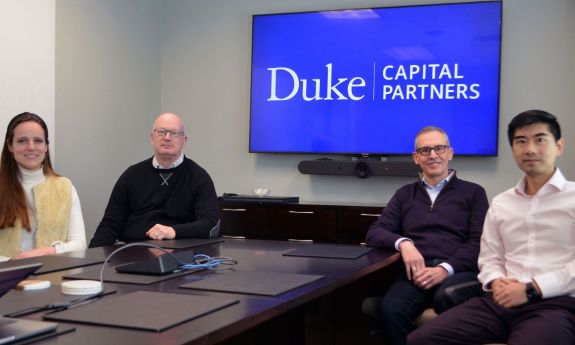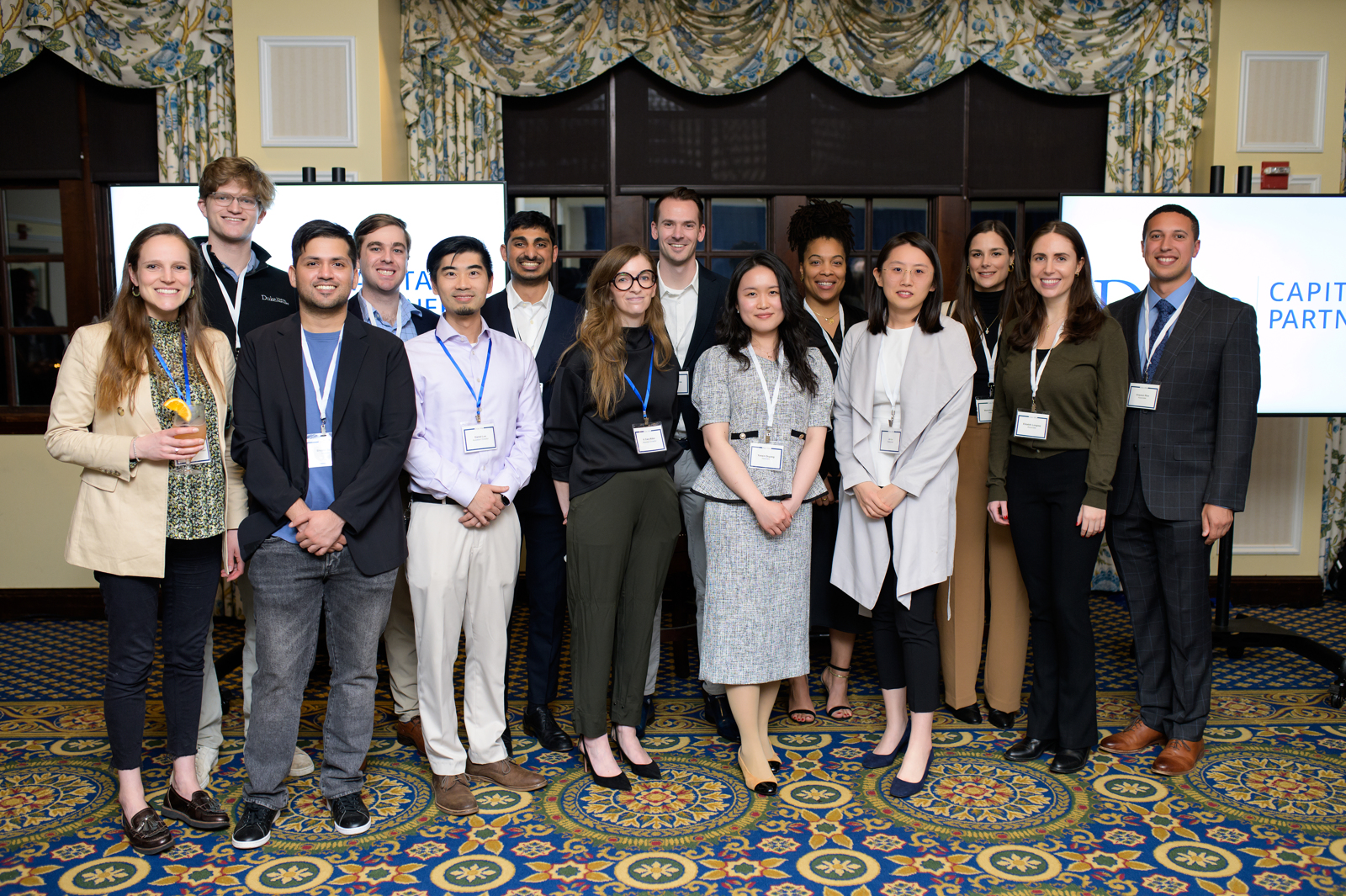10 Years, 60 Startups, $105 Million – and Counting: Duke Capital Partners Leads the Way in Alumni Investing

“The idea was simple: bring Duke people together to back Duke innovation and watch what happens,” Frey said. “Ten years later, the results speak for themselves.”
Entrepreneur and investor Kurt Schmidt took the helm as managing director in 2019 and continued developing the process. As the number of portfolio companies, investors and team members increased, interest from entrepreneurs, including from those outside of Duke, seeking funding also rose.

Meet Kurt Schmidt
The managing director of Duke Capital Partners learned his entrepreneurial spirit at an early age. Now he’s using it to build support for innovative discoveries in science and technology.
In recent years, Schmidt says, more than a thousand startups annually reach out to DCP seeking funding. About two hundred are evaluated more deeply, and a dozen or two are put through deep pressure testing and brought to the investor members. Each DCP member chooses whether to participate and at what amount, and then DCP coordinates the transactions.
The results are receiving recognition: seven DCP portfolio companies were named to Forbes’ 2025 list of America’s Best Startup Employers, three have appeared on Inc. Magazine’s Fastest Growing Private Companies list for two years running, and several have been featured on Fast Company’s list of the World’s Most Innovative Companies.
“A lot of universities talk about entrepreneurship. The difference with Duke is – through DCP and other initiatives – we’re actually doing it,” said Ken Gall, professor in the Thomas Lord Department of Mechanical Engineering and Materials Science and a serial entrepreneur who’s started several companies in the medical device space supported by DCP.
Though faculty-founded startups make up less than 1 percent of the total volume of companies reviewed, they account for half of the capital that has been invested over the past decade. Close to one-quarter of DCP’s portfolio companies have a student founder and almost half have alumni founders.
“It’s Duke people helping Duke people,” said Schmidt. And it’s not just about the money: “Companies need more than capital to be successful. They also need strategic guidance, mentorship, and connections to industry leaders. We connect people within our community to portfolio companies to help them succeed – with the ultimate goal of improving lives.”
For example, Dr. Neil Roth T’87 M’91, an orthopedic surgeon and DCP member, has flown into the Durham area from New York to test shoulder procedures with restor3d, one of Gall’s startups, when they were expanding into shoulder implants. “It’s a win-win for startups, for the DCP members, and for Duke,” said Roth.
“We probably would have been forced to move to New York if not for DCP,” said Kasper Kubica T’17, co-founder of antiperspirant solutions company Carpe, which recently had a successful exit – marking the 10th time DCP has returned capital to its investors. “Instead, we're building the ecosystem here in the Research Triangle.”

The secret to DCP’s success – now co-investing alongside firms such as Sequoia Capital, Kleiner Perkins, Google, and Amazon – is the team and network that Schmidt has built. He is also quick to highlight DCP’s Associates Program: Duke students who spend two years learning how venture capital and startups work and taking an active role in the investment process.
“The deals we were doing are real deals with real impact, real entrepreneurs on the other side. In some cases, we were participating in rounds that fundamentally changed the trajectory of these businesses,” said Willa Townsend T’15 B’23, who served as a DCP associate while at the Fuqua School of Business. In fact, the program was a major reason she applied to Duke in the first place.
“Venture capital is a very opaque industry and notoriously hard to break into,” Townsend said. “By having this student associate program, we’re democratizing access to venture capital.” She’s one of more than 130 associates trained by the DCP team over the years, and the experience helped prepare her for a job at Thrive Capital, a venture capital firm funding the likes of Instagram, OpenAI, and Spotify.
“One thing we consistently hear from firms that hire our students is how unique it is that DCP associates have real, hands-on venture capital experience – and can speak directly to the investments they worked on while still in school,” Schmidt said.
“We now have portfolio companies on four continents. I don't know that I would have envisioned that would have been possible,” added Schmidt, noting that the “small but mighty” DCP team still has big ambitions to grow into the future. “We're still scratching the surface of what's possible.”
Kiviat, from the first class of student associates, works at an innovative alternative asset manager in New York. He has also come full circle and is an investor member with DCP.
“Returning to DCP, now as a member of this organization I helped create, isn’t just a return – it’s felt like a homecoming,” Kiviat said.